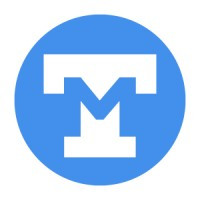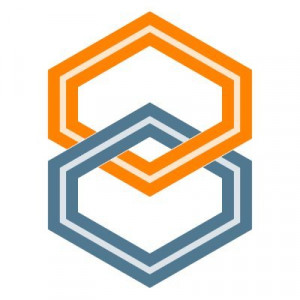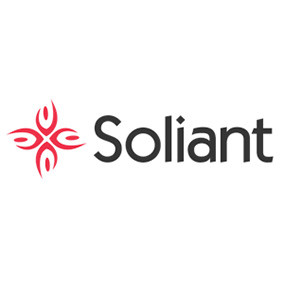Come work at the best place to give and receive care!
Job Description:
Affiliated with Southern New Hampshire Medical Center, Foundation Medical Partners is the second largest multi-specialty group in New Hampshire and serves the greater Nashua community. We encourage the professional growth and development of our employees and are proud of the workplace culture we have developed.
We understand the need to respond swiftly, and with accuracy, to cancer and blood conditions. And we know that successfully treating illness takes a team effort. That’s why our team is unified to coordinate care, responding to patient conditions with a precise diagnosis and personalized treatment plan that coordinates care across specialties. Our patients can find comfort in knowing that Massachusetts General Hospital can care for them close to home. Our clinical affiliation with the Mass General Cancer Center assures our patients access to highly skilled specialists, the newest clinical trials, and shared test and treatment options. This seamless care delivered locally by world-leading doctors gives patients what they need most when they are fighting cancer – peace of mind.
About the Job:
The role of the nurse navigator along the continuum of care is bidimensional in nature with a patient-centered (advocate, empowerment with education, and psychosocial support) and health system (member of the multidisciplinary team) orientation to deliver timely, seamless care. Across the care continuum, the role of the nurse navigator is to identify and address barriers to care (utilizing the 5 steps of the nursing process); empower patients with appropriate education and awareness of health literacy so they can make informed decisions; offer psychosocial support and access to resources; advocate for the unique needs with a cultural awareness of each patient regarding the use of facility and community resources; encourage patients to be engaged in their care planning; streamline care path transitions and logistic issues (diagnosis, treatment, survivorship, and end of life); and liaise between clinical and nonclinical specialists in the multidisciplinary care team
- Facilitates the appropriate and efficient delivery of healthcare services, within and across systems, and serves as the key contact to promote optimal outcomes while delivering patient-centered care. Assesses patient needs at the initial encounter and periodically throughout navigation, matching unmet needs with appropriate services and referrals to support services.
- Develops knowledge of local, community, or national resources and the quality of services provided; establishes relationships with providers of these services.
- Develops or uses appropriate screening and assessment tools and methods to promote a consistent, holistic plan of care, connecting patients to appropriate resource (social work, care coordination, dietary, and physician).
- Facilitatestimely and individualized care within the context of functional status, cultural consideration, health literacy, psychosocial, reproductive and fertility, and spiritual needs for patients, families, and caregivers.
- Supports a smooth transition of patients from active treatment into survivorship, chronic disease management, or end-of-life care.
- Follows patients throughout the care continuum, including emergency room visits and inpatient admissions, and collaborates with inpatient care management resources.
- Demonstrates interpersonal communication skills that enable exchange of ideas and information effectively with patients, families, and colleagues at all levels. This includes writing, speaking, and listening skills.
- Serves as a liaison for patient and family with diagnostic, treatment, supportive and financial services in order tooptimize outcomes.
- Advocates for patients to promote patient-centered care that includes shared decision making and patients’ goals of care with optimal outcomes.
- Facilitates communication among members of the inter professional care team to prevent fragmented or delayed care that could adversely affect patient outcomes.
- Provides appropriate and timely education to patients, families, and caregivers to facilitate understanding and support informed decision making.
- Assesses educational needs of patients, families, and caregivers by considering barriers to care (e.g., literacy, language, cultural influences, comorbidities).
- Provides and reinforces education to patients, families, and caregivers about diagnosis, treatment options, side effect management, post-treatment care and survivorship (e.g., survivorship care plan, treatment summary).
- Promotes autonomous decision making by patients through the provision of personalized education and reinforces the significance of adherence with patients, families, and caregivers regarding treatment schedules, protocols, and follow-up.
- Provides anticipatory guidance and manages expectations to assist patients in coping with a chronic or terminal diagnosis, and its potential or expected outcomes.
- Obtains or develops patient educational materials for patients, staff, and community members.
- Works to promote and advance the navigator role and takes responsibility to pursue personal professional growth and development. Facilitates continual promotion and quality improvement of an organization’s navigation program to best meet the needs of the community.
- Promotes lifelong learning and evidence-based practice to improve the care of patients with a past, current, or potential diagnosis of chronic or potentially life threatening illness.
- Contributes to the Nurse Navigator program, role development, implementation, and evaluation within the healthcare system and community.
- Participates in the tracking and monitoring of metrics and outcomes, in collaboration with administration, to document and evaluate outcomes of the navigation program and report findings to the oversight committee.
- Collaborates with the oversight committee and administration to perform and evaluate data from the community needs assessment to identify areas of improvement that will affect the patient navigation process, and participates in quality improvement based on identified service gaps.
- Attends and coordinates multidisciplinary planning conferences, develops concise patient summaries for use by care team, and documents recommendations made utilizing standardized care protocols in accordance with nationally recognized care guidelines.
- Proficient in the role and has the education, knowledge, and experience to use critical thinking and decision-making skills pertaining to the evolution of the navigator role and process improvement in the navigation processes.
- Actively participates in quality and process improvement activities, and data analysis, making recommendations to the oversight committee for appropriate navigation program changes.
- Develops and promotes pathways for patient recruitment by collaborating with internal and external stakeholders.
- Demonstrates the importance of patient satisfaction by addressing feedback data and working to develop patient satisfaction improvement processes.
- Contributes to program growth through collaboration with the program administration to develop a marketing strategy to support the navigation program.
- Contributes to the knowledge base of the healthcare community and in support of the Nurse Navigator role through activities such as involvement in professional organizations, presentations, publications, and research.
- Collaborates with treating physicians and support staff to prevent unnecessary hospitalizations or clinic visits, and improved adherence to treatment through the design and implementation of appropriate patient education and follow-up.
Who You Are:
Education: The minimum required to perform the essential duties of the role. Graduate of an N.L.N. approved nursing program required. Requires a master’s degree or completion of Master’s degree within 2 years of date of hire.
Licenseure/Certification: New Hampshire Registered Nurse or Compact State Registered Nurse License. ONN-CG or CBCN (if Breast Navigator specific) required. Nurses are expected to pursue professional certification in area of specialty practice upon eligibility, or within three years of entering the specialty practice. OCN preferred.
Experience: Have or obtain BLS qualification during orientation period and maintain during employment. Working knowledge of EPIC EMR preferred; Microsoft Office and Excel competency required. Recent Oncology nursing strongly preferred
- Sign-on bonus eligible position!
- Flexible day shift hours, no weekends.
- Health, dental, prescription, and vision coverage for full-time & part-time employees
- 403(b) Retirement Savings Plan
- Education & Paid training courses for continued career progression
Work Shift:
days-flexible schedule
SolutionHealth is an equal opportunity employer and all qualified applicants will receive consideration for employment without regard to race, color, religion, sex, sexual orientation, disability status, veteran status, or any other characteristic protected by law.









